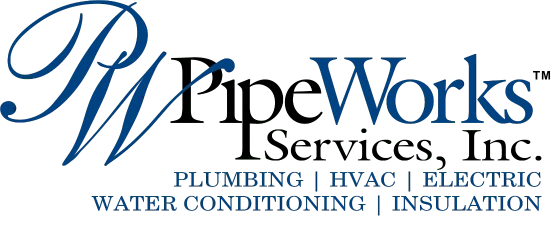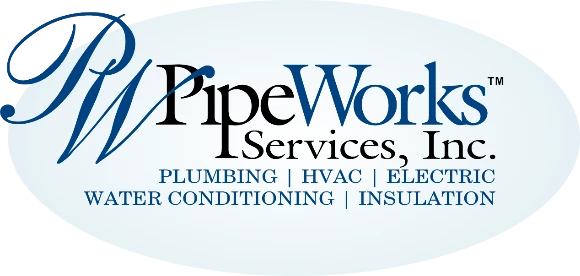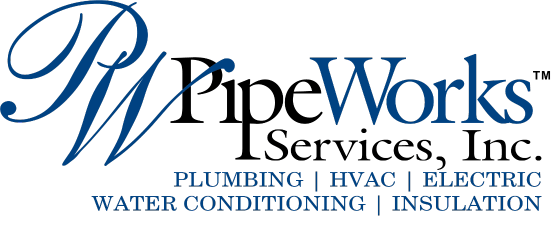Electricity runs all through your Chatham, NJ home. You rely on electricity to power your home’s comfort systems, appliances, electronics, and all the other connected devices. This system operates quietly behind the scenes, providing you with the power you need to keep everything running smoothly. However, your electrical system can be hazardous if neglected and unchecked.
With this comprehensive guide, you can learn more about the importance of safety checks and how to perform some of the checklist yourself. You can also learn when to call Pipe Works Services for a professional inspection in your Chatham home.
Why Electrical Safety Inspections Are Critical
Electrical hazards can wreak havoc on your home and cause serious injuries or even death. It’s crucial to perform regular electrical safety inspections to prevent these hazards and protect your home, belongings, and everyone living in the house. Let’s take a look at some of the important reasons for conducting routine electrical safety checks in your home.
Fire Prevention
Faulty wiring and overloaded circuits can cause electrical fires. Electrical fires can be especially dangerous as they often start in an area you cannot see and can easily spread through the walls to other areas.
Shock Prevention
Improper grounding and faulty outlets may cause electrical shocks. Electrical shocks can range from slightly painful to life-threatening.
Energy Efficiency
Damaged wiring and loose connections can lead to increased energy consumption and higher utility costs. Replacing these wires not only improves safety but also lowers your electric bill.
Code Compliance
Staying in compliance with local and regional electrical codes and regulations helps you avoid costly fines and penalties. In severe cases, your home may be deemed uninhabitable due to code violations, which could require you to relocate until necessary repairs and upgrades are completed.
Home Value
Your home value increases when the electrical system includes the latest safety measures. This is particularly important if you plan to sell your home, as potential buyers may be less motivated to purchase if your electrical system is not safe and up to date. You may find yourself on the losing end of a price-reduction negotiation if the home inspector reports electrical issues.
Signs You May Need an Electrical Safety Check
Although it’s essential to perform regular electrical safety checks to prevent issues, unexpected problems may arise between inspections. Check out these common signs that you need an electrical safety check in your home:
- Frequently tripped breakers or blown fuses
- Flickering or dimming lights
- Outlets or switches that are warm or hot
- Burning smells
- Unusual buzzing sounds near outlets or panels
- Two-prong outlets without grounding
- Sparks or shocks when plugging things in
How to Perform Your Own Electrical Check
Although it’s best to leave the electrical inspections to a licensed electrician, there are a few things you can do as a homeowner to improve the safety of your electrical system and spot problems early.
Outlets and Switches
Check outlet and switch plates for cracks and burn marks. Listen for buzzing sounds and feel them for heat. Test GFCI outlets by pressing the test button, then verify that the power is cut off to that outlet. After checking, press reset to restore power. Keep outlets safe by avoiding overloading them.
Cords and Plugs
Inspect all cords for fraying or exposed wires. Avoid running longer cords under rugs or furniture where they can overheat. Use surge protectors for larger and more expensive appliances to prevent dangerous electrical surges.
Electrical Panel
Check your electrical panel or breaker box for signs of rust, burning, or other damage. Look for loose wires inside and connected to the panel. Make sure all breakers are clearly labeled for each room or section of the house. Consider upgrading if you have a fuse box, as these setups are not as safe and may not be able to handle the electrical demand of your home’s connected systems, devices, and appliances.
Lighting
Ensure you’re using the correct wattage bulbs for each fixture in your home. Using bulbs with too high a wattage can cause overheating. Replace flickering bulbs immediately. Check for exposed wiring or damage to electrical portions of the fixture.
Appliances
Check appliances for proper electrical function. Inspect the cords and plugs on all appliances for damage and other issues. Unplug small appliances when not in use and unplug others when away from home for extended periods. If you spot damage to any of your appliances or their cords, discontinue using them until they have been repaired. Ensure all major appliances are connected to grounded outlets. These include your washer, dryer, oven, and refrigerator.
What Our Professional Team Does During Electrical Safety Checks
Although you can complete the previous simple checks without a professional, there are certain aspects of your electrical system that do require professional inspection by our licensed electricians. Here are some of the steps our electricians take when inspecting your electrical system for safety.
Infrared Scans
We perform infrared scans to detect overheating circuits and hot electrical components that you cannot easily check.
Test Grounding System
We test your grounding system to ensure it works properly and keeps your home safe.
Inspect Wiring
Much of the electrical wiring in your home runs behind the walls, above the ceiling, and in other hidden places. We’ll inspect your wiring using special equipment, checking for damage and deterioration.
Inspect Panel
We’ll ensure your electrical panel has sufficient capacity to meet your home’s electrical needs. We’ll test the breakers and verify that all the circuits are properly loaded.
Upgrade Outlets
We can upgrade your basic outlets to GFCI and AFCI outlets to promote greater safety and prevent fires and shocks.
How Often Do I Need an Electrical Safety Check?
The frequency of home electrical safety checks depends on the specific characteristics of your home and its electrical system. For older homes (over 40 years old), schedule a safety inspection annually. Older electrical components are more prone to safety issues and damage. For newer homes, schedule electrical safety checks every three to five years, unless you suspect a problem that requires immediate attention.
You should also schedule an electrical safety check before buying or selling a home, as well as anytime you perform major renovations. It’s also a good idea to call our professional electricians when installing a new major appliance to ensure your system can handle the load and that you have the proper outlets.
Call Today to Keep Your Electrical System Safe
At Pipe Works Services, we are experts in electrical safety. Our licensed electricians have the experience and skill to understand how your system should operate and identify conditions that require additional attention or repair. We take your home safety seriously and always perform diligent and thorough inspections to help you prevent a catastrophe. We also offer a comprehensive range of skilled electrical services, including repairs and installations, to help keep your system functioning safely and reliably.
Call Pipe Works Services today to schedule a routine electrical safety check for your Chatham home, ensuring your home, belongings, and family stay safe.





